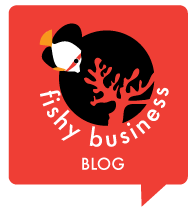SO i though it might be interesting to breakdown the different constituents of commonly sold fish food (be it frozen, flake, liquid etc - they all fit in somehow).... you know at the back of the container/packet it usually breaks down the elements; ever wondered their importance?
Protein
They are very important elements which are the building blocks of life and perform a huge number of biological functions. They are made up of many different amino acids in different combinations to create different proteins. Most fish food contains types of fish or meat in crude form to provide the proteins to your fishes diet i.e. beef heart etc. When using frozen food it is important to consider that the actual freezing process causes the internal cell walls of the frozen product (i.e. brine shrimp, plankton or blood worms) to break releasing all the good nutrients; this a good reason to not feed your fish a frozen food only diet.
Feeding your fish only frozen foods (such as blood worms etc) can lead to your fish to developing deficiencies.
Vitamins
Vitamins are organic compounds essential to animals in small quantities for growth and healthy living. These essential nutrients are also often lost from fish food due to the process of sterilisation, freeze drying or freezing. Some vitamins are able to be synthesized by the animal itself where as others need to be provided as part of the diet. Vitamins can be both water and fat soluble therefore, it is important to feed your fish good quality food to ensure it is formulated well and, contains these essential vitamins which they need to get via their diet. It doesn't hurt to feed your fish a variety of foods just to make sure you cover all their essential dietary requirements.
Fats/Lipids
Lipids provide many very important biological functions in animals including fish. They are used as structural components of animal cell membranes, they provide fuel for internal processes, and of course insulation. Many fish foods contain amounts of fat or lipids as they are essential nutrients to fish however, can also do harm if fish are fed this particular element in abundance. There are both saturated and unsaturated types of fats and foods such as beef heart contain high amounts of saturated fats. In most instances the quality flake/pellet food available at your local fish store will contain the right amounts of saturated and unsaturated fats. These foods also contain types of preservatives to stop the food from going off and things such as fats from breaking down. Probably best to use a spoon instead of your fingers to feed your fish because, the water in your aquarium (and even you tap) contains many different types of bacteria and fungi which start the process of spoiling your fish food....
So to sum up best to feed your fish a varied diet frozen, freeze dried and pellet/flake food. Where possible do not overfeed them with frozen or live foods as its not healthy for them and, try and keep the food container free of wet fingers :)

No comments:
Post a Comment